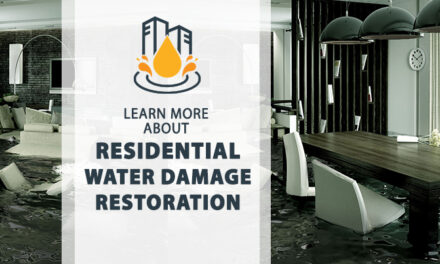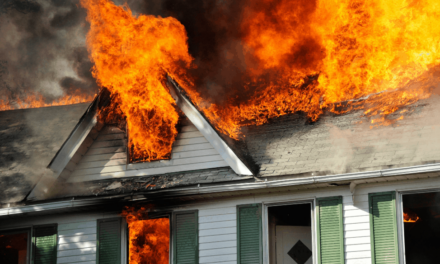
Average Insurance Payout For Water Damage
Average Insurance Payout For Water Damage is a frequent and costly residential issue. Water damage from a busted pipe, leaking roof, or flooded basement may ruin your house and cost you a lot of money. This article will examine water damage insurance claims and the typical compensation, providing property owners with important insights.
The Importance of Water Damage Insurance
Water damage can strike surprisingly, and when it does, the financial burden can be overwhelming. Having a reliable insurance policy in place is essential to protect your investment and provide peace of mind. Let’s take a closer look at the role of insurance in mitigating the costs associated with water damage.
Water damage insurance covers broken pipes, plumbing leaks, roof leaks, and floods in homeowners’ insurance plans.
Coverage might vary greatly, so it’s important to understand your insurance policy’s terms and conditions. To ensure water damage protection, review your insurance.
Factors Affecting Average Insurance Payouts for Water Damage
The average insurance payout for water damage can vary widely depending on several factors. To help you better understand what to expect, let’s explore these key determinants:
Type and Cause of Water Damage
The type and cause of water damage play a significant role in determining the insurance payout. Some common types of water damage include:
- Burst pipes
- Plumbing leaks
- Roof leaks
- Flooding
Insurance policies may cover these types of damage differently. For instance, insurance plans may cover broken pipes more than bad upkeep.
Severity of Damage
The extent of the damage is another critical factor. Insurance adjusters will assess the severity of the water damage and determine what needs repair or replacement. The more extensive the damage, the higher the potential insurance payout.
Insurance Policy Coverage Limits
Each insurance policy has coverage limits, which dictate the maximum amount the insurer will pay for a claim.
Deductible Amount
Most insurance policies require policy owners to pay a deductible before the insurance company covers the remaining costs. The higher your deductible, the lower the insurance payout will be. Consider your deductible when assessing your potential payout.
Timely Reporting and Documentation
Reporting the water damage to your insurance company promptly and providing thorough documentation is crucial. This includes taking photos and videos of the damage, keeping records of expenses, and documenting the cause of the damage. Failing to do so may result in a reduced payout or denial of your claim.
Policy Exclusions
Insurance policies frequently contain exclusions that specify what they do not cover. Understanding these exclusions is essential to manage your expectations regarding the insurance payout. Common exclusions may include damage caused by flooding from external sources or gradual wear and tear.
Average Insurance Payouts for Different Types of Water Damage
Now that we’ve discussed the factors that influence insurance payouts for water damage, let’s explore the average payouts for specific types of water damage:
Burst Pipes
Insurance policies typically cover burst pipe damage, and the average payout can range from $5,000 to $10,000 or more, depending on the severity of the damage and your policy’s coverage limits.
Plumbing Leaks
Insurance commonly covers plumbing leaks, including those caused by faulty pipes or appliances. Average payouts for plumbing leak damage can vary but generally fall within the $2,000 to $5,000 range.
Roof Leaks
Roof leaks can cause damage to both the roof itself and the interior of your home. Average insurance payout for water damage may average between $5,000 and $10,000, depending on the extent of the damage and the type of coverage you have.
Flooding
Flooding, whether from natural disasters or sewer backups, is a more complex scenario. Standard homeowners’ insurance policies typically do not cover flood damage. Instead, you would need to purchase a separate flood insurance policy through the National Flood Insurance Program (NFIP) or a private insurer. Average payouts for flood damage can vary significantly based on the policy and the extent of the damage.
Tips for Maximizing Your Insurance Payout
While you can’t control when water damage occurs, you can take steps to maximize your insurance payout when you need it most. Here are some valuable tips to consider:
Understand Your Policy
Carefully read your insurance policy to understand what it covers and what it does not. If you have questions or need an explanation, don’t hesitate to reach out to your insurance agent.
Act Quickly
Report the water damage to your insurance company as soon as possible. Timely reporting can expedite the claims process and prevent further damage from occurring.
Document Everything
Take clear pictures and videos of the damage, and keep careful records of all the costs that come with the water damage, like how much it costs to fix and how much it costs to rent a place to stay temporarily.
Obtain Multiple Estimates
Obtain estimates from reputable contractors for the repair or restoration work needed. Having multiple estimates can help ensure you receive a fair payout.
Work with Professionals
Consider hiring a public adjuster or a restoration company with experience in handling insurance claims. They can help you navigate the claims process and advocate for your interests.
Conclusion
Water damage is unpleasant and expensive for homeowners. Understanding insurance payout considerations and being prepared might help you recover from such occurrences. Review your insurance coverage, act quickly if water damage occurs, document everything, and get expert help when needed.
Del Mar Builders, a top fire restoration company, is here to assist you with water damage and other property-related issues. If you require their services, you can reach them at 800.298.0900. Protect your investment and be prepared for unexpected water damage with the right insurance coverage.




